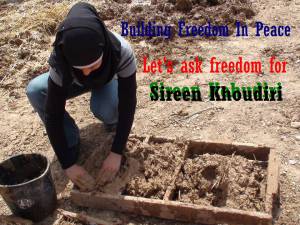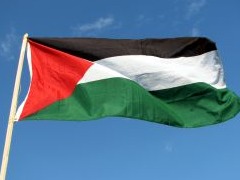Tag: Arrests
-

UPDATED: Palestinian activist arrested in night raid in Nablus
07th January 2014 | International Solidarity Movement, Nablus Team | Nablus, Occupied Palestine Updated 10th January: Sireen Khudairi was released at 17:15 on the 8th of January. Sireen was brought inside Salem Court at 10:30am after being made to stand outside for an hour with her hands and feet shackled and without a jacket. Once brought into the courtroom…
-

Two international activists to be deported after their arrest is declared illegal
09th January 2014 | International Solidarity Movement | Occupied Palestine Yesterday, Wednesday 8th January, at approximately 11am in Khalil (Hebron), Vincent Mainville and Fabio Theodule (Swiss and Italian citizens respectively), were arrested by Israeli border police officers. The two international activists were first detained while trying to stop Israeli forces firing live ammunition and tear gas…
-

Israeli forces arrest three youth in Hebron
06th January 2014 | International Solidarity Movement, Khalil Team | Hebron, Occupied Palestine This morning in Khalil (Hebon), a large group of Israeli border police and soldiers gathered outside checkpoint 29. Israeli forces fired several tear gas grenades towards a school, detained four Palestinian youth and arrested three of them, taking them to Kiryat Arba police…
